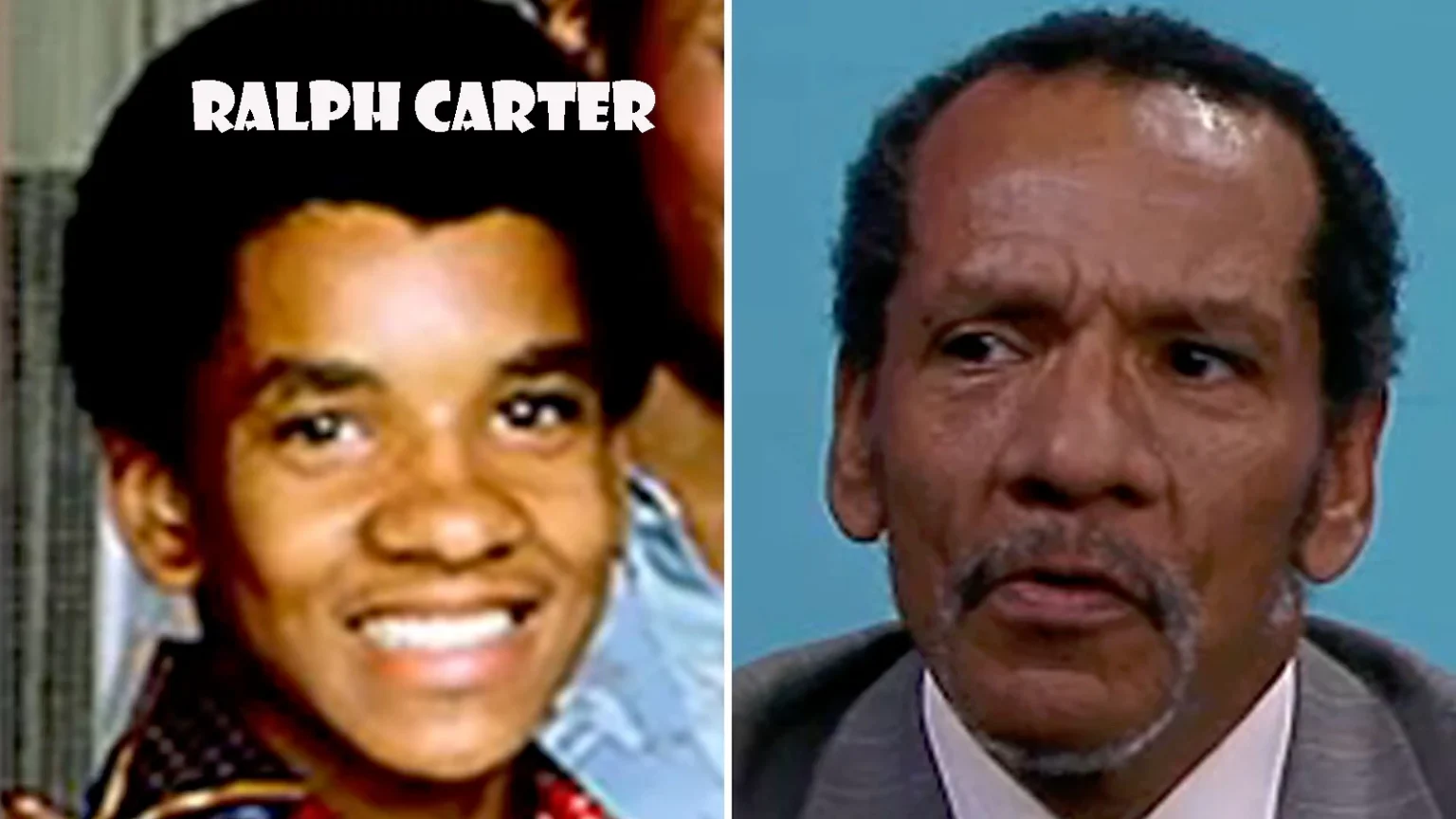Ralph Carter is a name deeply respected in American entertainment history. Best known for playing Michael Evans on the classic 1970s sitcom Good Times, Carter represented more than just a character—he embodied the hopes, struggles, and brilliance of a new generation of young Black Americans.
His powerful performance helped shape public perceptions and opened doors for more thoughtful representation of Black youth on television.
While his fame began early, Ralph Carter’s journey is unique. He started as a Broadway performer, winning awards before entering the television world.
His dedication, emotional depth, and intelligent portrayals made him one of the standout performers of his era, even though he eventually stepped away from Hollywood.
Ralph’s impact remains strong among those who appreciate the cultural and historical contributions of 1970s Black entertainment.
Early Life and Background
Born May 30, 1961, in New York City, Ralph Carter grew up in a time of social change. The 1960s and 70s were filled with civil rights movements, cultural revolutions, and major political shifts.
Growing up in an urban environment filled with both struggle and inspiration, Ralph developed a love for performance at an early age.
He began acting as a child and was quickly recognized for his natural ability. Ralph wasn’t just acting for fun—he had a gift for connecting with audiences, even at a very young age.
He understood emotion, timing, and presence, which made him stand out on stage. New York’s theater scene gave him the platform he needed to show his talent to the world.
Broadway Career and Acclaim
Before television fame, Ralph Carter found success on Broadway, one of the most respected stages in the world. His breakthrough performance came in the musical Raisin (1973), based on Lorraine Hansberry’s A Raisin in the Sun. In Raisin, Ralph played Travis Younger, the son of a struggling Black family trying to build a better future.
Ralph’s role demanded emotional maturity, and he delivered it flawlessly. His performance impressed critics and audiences alike, earning him prestigious awards such as:
- Theatre World Award
- Drama Desk Award for Most Promising Newcomer
These awards weren’t just for show—they marked Ralph as one of the most exciting young performers of his time. His Broadway success gave him the attention of producers who were casting for a new sitcom focused on African-American life: Good Times.
National Fame Through Good Times
Ralph Carter was cast as Michael Evans, the youngest child in the Evans family, on Good Times, which aired from 1974 to 1979. The show was a major part of TV history, portraying a working-class Black family living in a Chicago housing project. It tackled real-life issues like unemployment, racism, inner-city violence, education, and family values.
Michael, played by Ralph, was not the average sitcom kid. He was intelligent, idealistic, and outspoken about social justice. He often debated with his father and expressed progressive political ideas. His character represented the voice of a younger, more educated generation during the civil rights era.
Michael’s character:
- Questioned the status quo.
- Discussed civil rights and political issues.
- Represented young Black intellect and ambition.
Ralph’s portrayal of Michael helped millions of viewers—especially Black families—see a different kind of TV character: a child who was wise beyond his years and unafraid to speak his mind. His presence brought depth and seriousness to a show that was also known for its humor.
Exploring Music and Variety Shows
During his time on Good Times, Ralph Carter also explored the music world. In 1975, he released an album titled Young and in Love. The album included several songs that showcased his singing talent, including the title track “When You’re Young and in Love”, which became a minor hit.
He also appeared on musical television specials and variety shows, where his charm and charisma won over audiences. Ralph performed on shows like:
- Soul Train
- American Bandstand
- The Mike Douglas Show
Although his music career was brief, it added another layer to his artistic expression. Ralph was clearly more than a child actor—he was a multitalented performer.
Life Beyond the Spotlight
When Good Times ended in 1979, Ralph Carter was still a teenager. Unlike many child stars who struggle with fame, Ralph made a conscious choice to step away from the limelight. He didn’t chase the spotlight or get lost in Hollywood; instead, he focused on building a stable, private life.
He appeared in local theater productions from time to time and made rare public appearances at fan events, but he mostly stayed out of the entertainment business. Ralph got married and focused on his family life, preferring peace over publicity.
This decision earned him admiration. Many fans respect the way he managed his early fame and chose a life grounded in real values, not media attention.
Cultural Impact and Legacy
Ralph Carter’s legacy is not about the number of roles he played—it’s about what those roles represented. As Michael Evans, he was the face of a hopeful and intelligent generation. His character helped challenge stereotypes and made a deep impact on both Black and white audiences.
His contributions helped:
- Normalize serious political discussions among young characters on TV.
- Prove that Black youth could be leaders in their communities.
- Inspire future Black actors and writers to create deeper, more realistic roles.
Today, Good Times is still streamed and watched by new generations. Ralph Carter’s performance remains just as powerful, and his character continues to resonate with viewers looking for truth, justice, and hope.
Conclusion
Ralph Carter’s story is one of early talent, bold expression, and lasting influence. From Broadway stages to primetime television, he brought truth and emotion to every role. While many actors chase fame, Ralph chose integrity and personal peace. That decision only makes his contributions more admirable.
He may no longer be in the spotlight, but Ralph Carter will always be remembered as a bright voice in Black entertainment, a child star with wisdom beyond his years, and a performer who helped change the story of American television forever.
FAQs
Who is Ralph Carter and why is he famous?
Ralph Carter is an American actor and singer, best known for playing Michael Evans on the 1970s sitcom Good Times. His role symbolized youth activism and intelligence.
What was Ralph Carter’s breakthrough role on Broadway?
He gained fame in the musical Raisin, earning awards for his emotional performance as Travis Younger. It launched his acting career nationally.
Did Ralph Carter have a music career?
Yes, in 1975 he released an album titled Young and in Love, showcasing his vocal talent on TV specials and music shows.
What made Ralph Carter’s character on Good Times stand out?
Michael Evans was known for his sharp intellect and political awareness, representing a new image of Black youth on television.
What did Ralph Carter do after Good Times ended?
He stepped away from the spotlight, focused on family, and occasionally performed in local theater productions. He chose a quieter life over Hollywood fame.
Also Read:
Victor Davis Hanson Accident: Real-Life Risk Behind an Academic Giant’s Calm Demeanor
Leyah Amore Harris: Why Her Short Life Matters in Conversations About Child Loss
Wepbound: Why This Unknown Name Is Worth Watching in Tech Circles
letsbuildup org: Why It Matters for Personal Growth and Environmental Health
odysseystoryshop.com: Why Personalized Gifts Are the New Trend

















